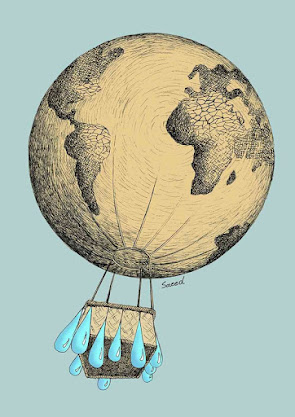Concluding thoughts
Hello everyone!
For this final post, I would like to reflect on the blog entries written over the last few weeks.
In the introduction, I indicated that I would look at representations of power interactions amongst stakeholders. The instance of the Nile’s dispute demonstrated a clear distribution of power, with the British Empire's influence, and subsequently authority handed to Egypt to regulate the Nile's water. In Tanzania, we discovered that structural economic issues offered governments incentives to favour urban residents or the agricultural sector for water; nevertheless, other parties were able to modify that condition through dialogue and informal bargaining. Something interesting I understood throughout my research was that power allocations allow particular stakeholders to affect water management, as well as who is accountable for water distribution.
The majority of the articles discussed the government's obligation to citizens to construct water infrastructures and ensure equitable distribution. Still, post 7 showed that those most affected by water crises (women and girls) may be the ones taking responsibility and participating actively in hydro-politics to improve access to water. This reflected a participatory approach to water management, already mentioned in post 4.
Main theme of the blog was about challenges of equity sparked by water scarcity.
Conflicts and tensions were mentioned for different stakeholders (urban/rural, pastoralist/farmers, women, governmental authorities etc.) and for different scales (local, transboundary). Water issues have shown two options for resolution: cooperation or conflict escalation to violence. Indeed, a lesson learnt from the study cases was that, when managed properly, water doesn’t necessarily lead to conflicts and can foster cooperation (e.g. case of LHWP). Cooperation is the preferred way when stakeholders recognize mutual benefits. The importance of transnational water and technology was highlighted in posts 3 and 8. On occasion, they can be used to promote global collaboration.
I was unable to post research done on "how to measure the right to water" because of the word limit. It covered limitations and insights of instruments to measure water scarcity, challenges with the lack of data, and the connection between SDG6 and human rights. Another subject I came across was the cultural significance of water and its relationship to Islam and the "Sharia" (which translates as "way to water").
Overall, I think that focusing on a specific region of Africa or a more specific theme of hydro-politics would have been helpful to narrow down the possibilities for the blog subjects and keep a clearer line of research between posts. Yet, as the theme was new to me, I am happy to have been able to learn more about diverse subjects. No overall conclusion can be drawn from my posts, but I hope this blog can serve as an introduction to some hydro-political challenges in Africa and spark further interests to learn more (as it did for me!).
Thank you for taking the time to read!

Comments
Post a Comment